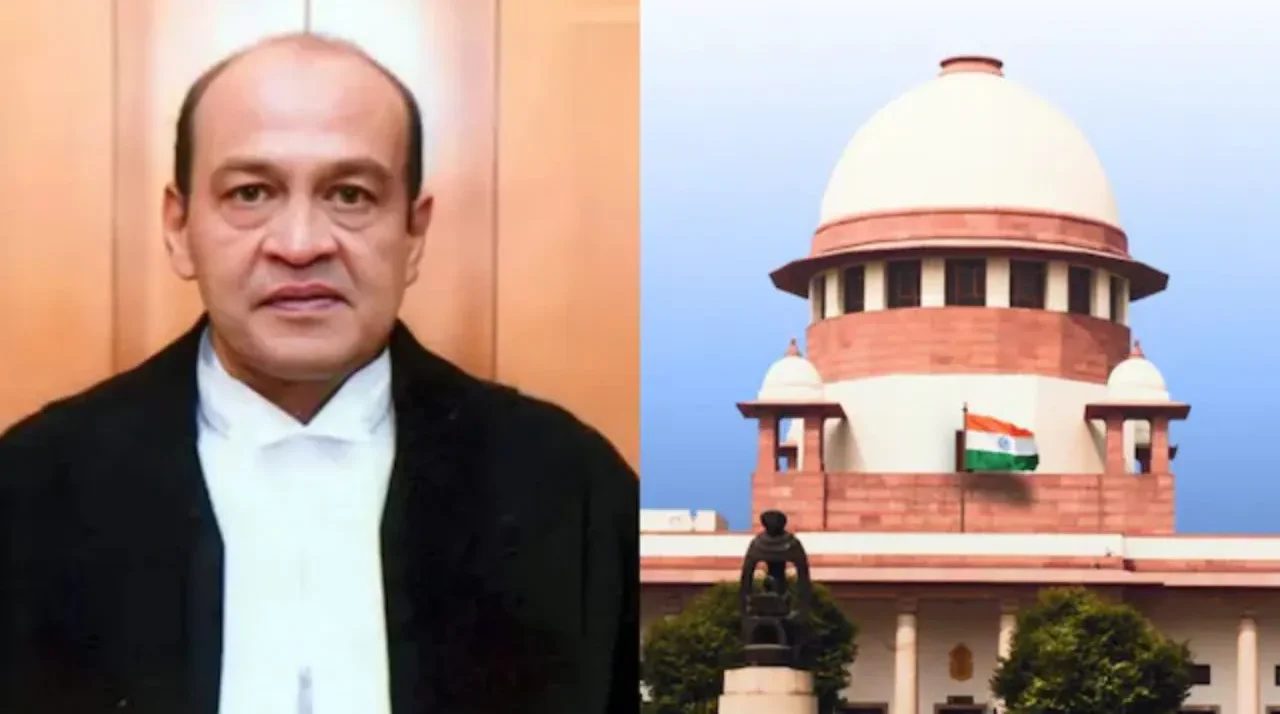In a dramatic turn of events, Justice Yashwant Varma, currently serving at the Allahabad High Court, has approached the Supreme Court of India to challenge an impeachment recommendation issued against him. The recommendation, made by former Chief Justice of India Sanjiv Khanna on May 8, suggests Justice Varma’s removal following a controversial incident involving a large stash of cash allegedly found at his residence. As the Monsoon Session of Parliament nears, where impeachment proceedings are likely to begin, the judge is seeking urgent relief from the apex court.
The Incident: Cash Found After Fire
The controversy began on March 14 when a fire broke out at Justice Varma’s residence. During the firefighting operation, first responders discovered sacks containing burnt currency notes in an outhouse storeroom. This unexpected and suspicious find prompted a high-level internal inquiry. The Supreme Court soon constituted a three-member in-house committee to probe the matter thoroughly.
According to sources, Justice Varma claims that the cash was not discovered in the main residence but in the outhouse. He has consistently maintained his ignorance of the cash being stored there. He insists that ownership of the money, its origin, and other key details have not yet been established, and further investigation is essential before drawing conclusions about culpability.
Justice Varma’s Supreme Court Petition
Justice Varma’s petition in the Supreme Court alleges procedural unfairness in the impeachment process initiated against him. He argues that the in-house committee reached its conclusions without granting him a full and fair hearing. He claims he was not given the opportunity to present his side in person or respond adequately to the evidence and allegations.
His petition asserts that the inquiry was flawed and that basic investigative procedures were skipped, especially concerning how the cash came to be in the outhouse and whether it was indeed under his knowledge or control. According to Justice Varma, denying him a personal hearing violated principles of natural justice.
The Panel and Its Findings
The Supreme Court had constituted an inquiry committee comprising three senior judges: Justice Sheel Nagu, Chief Justice of the Punjab and Haryana High Court; Justice G.S. Sandhawalia, Chief Justice of the Himachal Pradesh High Court; and Justice Anu Sivaraman of the Karnataka High Court. This committee submitted its final report on May 3, after examining the incident and related evidence.
Based on the panel’s findings, then-CJI Sanjiv Khanna made a formal recommendation to the President and Prime Minister, proposing Justice Varma’s removal through impeachment. The Supreme Court also directed that Justice Varma should not be assigned any judicial work in the Allahabad High Court until the matter is resolved. He remains in a non-functional status, awaiting the final outcome.
Allegations of Mental Harassment and Lack of Evidence
In his appeal, Justice Varma not only contests the impeachment recommendation but also raises concerns about mental harassment and reputational damage. He underscores that the presence of cash in an outhouse alone cannot constitute proof of wrongdoing without further investigation into ownership and control.
He also contends that the committee failed to explore alternate possibilities or verify the authenticity and source of the cash. Justice Varma’s defense hinges on the argument that drawing adverse conclusions in the absence of foundational facts is both premature and unjustified.
Parliamentary Proceedings Ahead
The Monsoon Session of Parliament, scheduled from July 21 to August 12, is expected to take up the impeachment proceedings. If both Houses of Parliament approve the motion with a two-thirds majority, Justice Varma could be formally removed from office.
However, the timing of the petition to the Supreme Court is seen as a crucial legal move to stall the impeachment or potentially get the recommendation quashed. If the apex court accepts his arguments and finds merit in the procedural lapses he alleges, it could lead to a significant legal precedent in judicial accountability and protection.
A Delicate Matter of Judicial Integrity
This case touches upon several sensitive issues — judicial ethics, constitutional procedures for impeachment, and the principles of natural justice. While the judiciary must maintain its credibility and transparency, it must also ensure that accused judges receive a fair and unbiased inquiry. With the stakes high for both Justice Varma and the Indian judicial system, the outcome of his Supreme Court challenge could have lasting implications.
The case has already triggered nationwide discussions about corruption in high offices and the mechanisms in place to investigate such matters. As the nation waits for the Supreme Court’s next move, Justice Varma’s petition shines a spotlight on the delicate balance between judicial discipline and fair trial rights within India’s constitutional framework.







